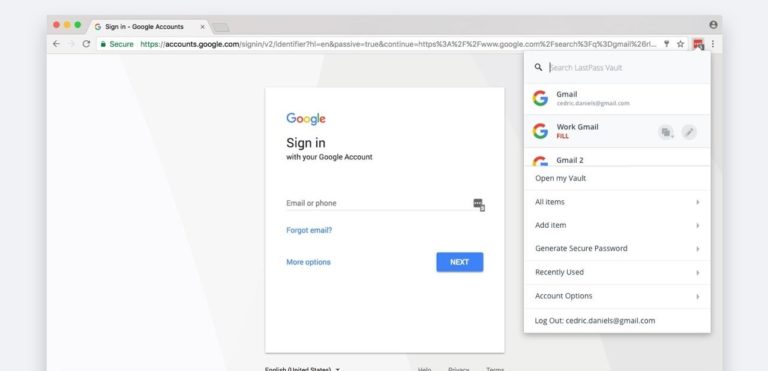


- #Chrome extensions for lastpass upgrade#
- #Chrome extensions for lastpass android#
- #Chrome extensions for lastpass password#
- #Chrome extensions for lastpass free#
Pass (Free) : Pass is a command-line wrapper around GPG (GNU Privacy Guard), which is to say, this is only for the nerdiest of users.Roboform recently completed an independent security audit and came out looking good. There are apps for every common platform, and it’s easy to use.
#Chrome extensions for lastpass free#
I’ve been testing the free plan for a while and haven’t run into any problems. Roboform ($24 Per Year, $48 Per Year for Five-User Family Plan) : Roboform has most of the same features as the rest in this list, but it lacks some of the things that differentiate our top picks, like Bitwarden’s open source aspect or 1Password’s travel features.Like Dashlane, Keeper has a lot of extras, including dark web monitoring, meaning it will check publicly posted data to make sure yours isn’t available. Keeper works much like 1Password and others, storing only your encrypted data, and it offers two-factor authentication for logging in to your account.
#Chrome extensions for lastpass password#
#Chrome extensions for lastpass android#
The company doesn’t offer a desktop app, but I primarily use passwords in the web browser anyway, and Dashlane has add-ons for all the major browsers, along with iOS and Android apps. In practice, Dashlane is very similar to the others on this list. Setup and migration from another password manager is simple, and you’ll use a secret key to encrypt your passwords, much like BitWarden’s setup process. Dashlane actively monitors the darker corners of the web, looking for leaked or stolen personal data, and then alerts you if your information has been compromised. One of the best is Site Breach Alerts, something other services have since added as well. However, updates over time have added several helpful features. Back then, it was the same as its competitors, with no standout attributes. I first encountered Dashlane several years ago. $60 Per Year (Single) $90 Per Year (Family) Passkeys will eventually also function with systems by Microsoft, Meta, and Amazon. Google has already rolled out Passkey support in Android and Chrome. Websites and services need to support the FIDO Alliance’s protocols, which, at the moment, most don’t. Passkeys have been available since iOS 16 and macOS Ventura, but there are some limitations. Apple will store them in iCloud’s Keychain so they’re synced across devices, and they work in Apple’s Safari web browser. Passkeys are generated cryptographic keys managed by your device. The latest effort to eliminate the password comes from the FIDO Alliance, an industry group aimed at standardizing authentication methods online.Īpple has implemented the FIDO protocols in what the company calls passkeys. Passwords are a pain-you’ll get no argument here-but we don’t see them going away in the foreseeable future. Passkeys, FIDO, and the “Death of the Password”Ī concerted effort to get rid of passwords began roughly two days after the password was invented.
#Chrome extensions for lastpass upgrade#
Read our guide to VPN providers for more ideas on how you can upgrade your security, as well as our guide to backing up your data to make sure you don’t lose anything if the unexpected happens. We need to offload that work to password managers, which offer secure vaults that can stand in for our memory.Ī password manager offers convenience and, more importantly, helps you create better passwords, which makes your online existence less vulnerable to password-based attacks. That might work for Memory Grand Master Ed Cooke, but most of us are not capable of such fantastic feats. (Make sure they are long, strong, and secure!) Just kidding. The safest (if craziest) way to store your passwords is to memorize them all. The problem is, most of us don’t know what makes a good password and aren’t able to remember hundreds of them anyway. For nearly a decade, that’s been “123456” and “password”-the two most commonly used passwords on the web. We know they’re good for us, but most of us are happier snacking on the password equivalent of junk food. Password managers are the vegetables of the internet.


 0 kommentar(er)
0 kommentar(er)
